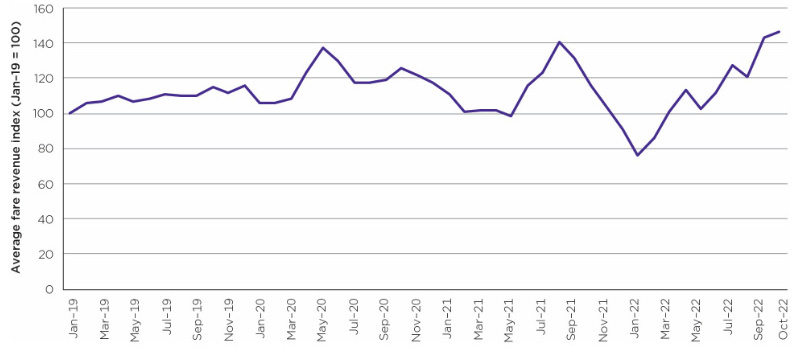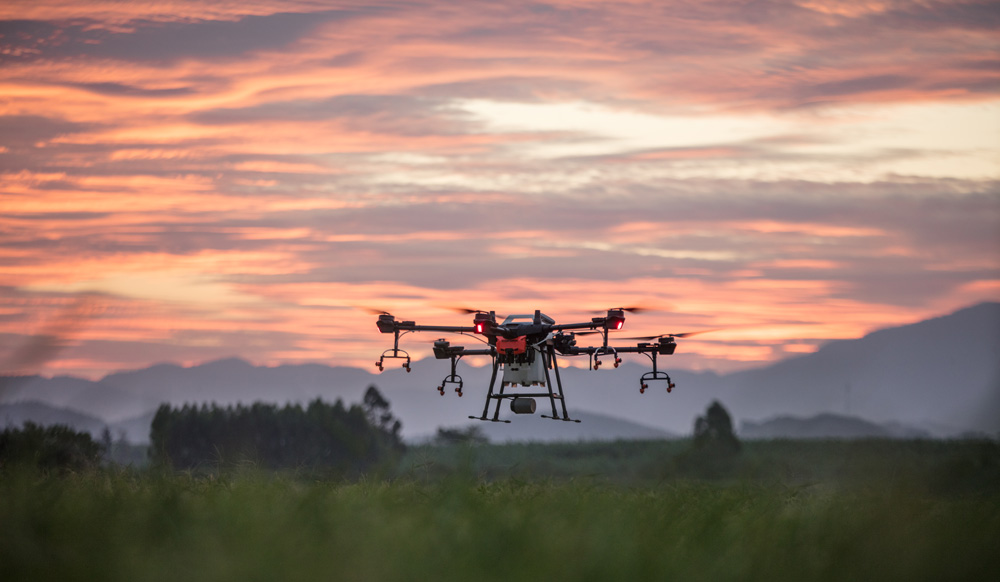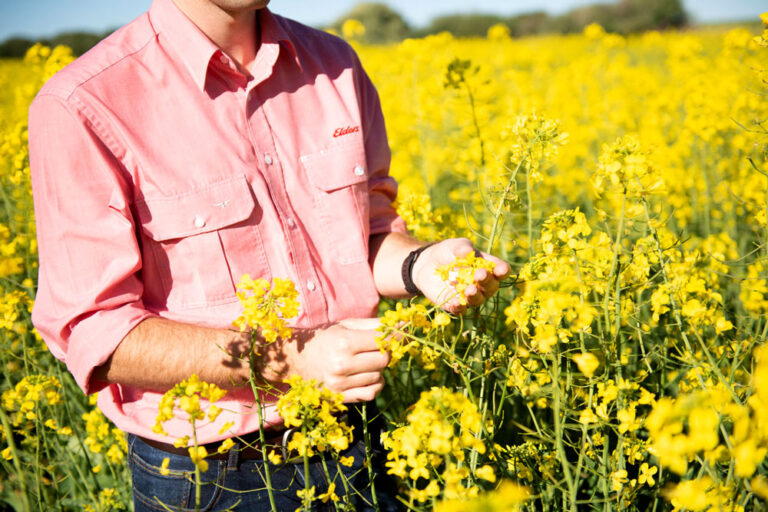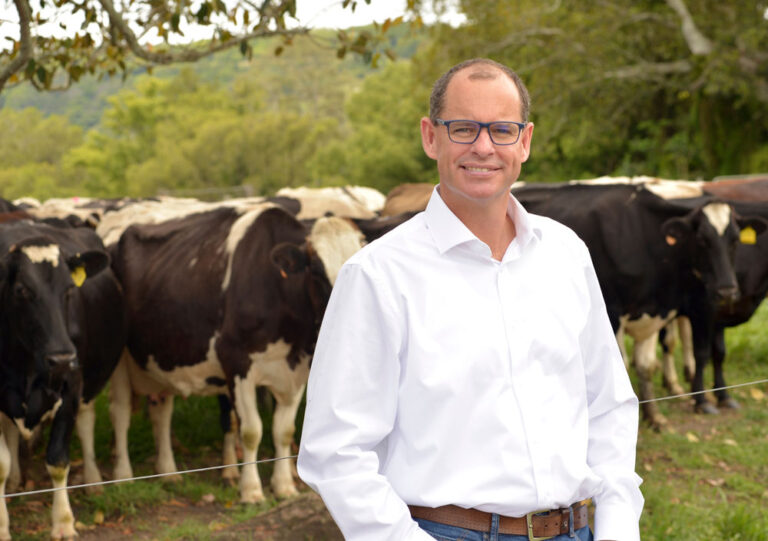Get ready to pay through the nose as airfares escalate to levels not seen previously as passenger demand outstrips supply

If you are still planning to fly somewhere this Christmas, don’t consider that thought any further, change your oil and road-trip it or simply put your feet up.
Domestic airfares have soared well above pre-pandemic levels, and the extra revenue from more expensive flights has led Australia’s three airline groups to forecast a profitable financial year after three years of significant losses, the ACCC Airline competition report reveals.
The quarterly report, released today, shows that the average revenue per passenger, an indication of average airfares across all fare types, was 27% higher in October 2022 than it was in October 2019.
“Airfares have risen due to strong demand for travel and constrained supply as airlines have scaled back their schedules in response to high jet fuel costs and operational challenges,” ACCC Commissioner Anna Brakey said.
Index of average fare revenue per passenger – January 2019 to October 2022

Note: Figures aggregate fare earned from business class and economy class passengers. Figures exclude ancillary service revenues. Excludes data for Tigerair.
Of the different fare types, discounted economy fares have increased the most because with fewer flights but strong demand, the airlines don’t currently need to offer special fares to fill their planes.
An index of the discounted economy fares across Australia’s top 70 domestic routes in November 2022 was more than double what it was in April 2022, when it hit an 11-year low. In September this year, the same index of the cheapest available fares reached a 15-year high.
“Historic lows and highs for discount airfares in the same year illustrate how changeable this market has been as the industry recovers from the pandemic,” Ms Brakey added.
“We accept that the airlines are still experiencing some pandemic-related resource challenges, but the ACCC will be monitoring them closely to ensure they return capacity to the market in a timely manner to start easing pressure on airfares.
“We would be concerned if airlines withheld capacity to keep airfares high”, Ms Brakey suggested.

Flexible economy and business airfares have not increased as much as discounted fares, and in November 2022 they remained below pre-COVID-19 prices.
After some sizeable losses due to the pandemic, the airlines are forecasting positive financial returns on the back of strong demand and high airfares. The Qantas Group, Virgin Australia and Rex all expect to be profitable in the current financial year ending June 2023.
The Qantas Group expects an underlying profit before tax of between $1.35 billion and $1.45 billion for the six months to the end of 2022, which is close to the company’s record for a full year of operation.
Flight cancellations and delays spiked in winter this year as airlines dealt with high rates of staff illness, workforce shortages and supply chain disruptions.
While staff absences have declined, the industry continues to deal with workforce shortages and supply chain issues. There’s also uncertainty about how the most recent increase in COVID-19 cases will impact the industry.

“As we are heading into the summer holidays, the airlines have told us they are keeping additional crew and aircraft on standby to help minimise delays,” Ms Brakey warned.
Jetstar, Qantas, Rex and Virgin Australia collectively cancelled 2.9% of their domestic flights in October 2022, down from 6.4% in July and closer to the long-term average of 2.1%.
While nearly 31% of all flights were delayed in October, compared with the long-term average of about 18%. Qantas and Rex cancelled the lowest proportion of flights in October, and Qantas had the best on-time performance of the airlines.
“The airlines have significantly improved their reliability following historic lows over winter; however, flights are still regularly delayed,” Ms Brakey added.
Domestic cancellations and delays – July 2022 and October 2022
| Cancelled flights (%) | Delayed arrivals (%) | |||
| July 2022 | Oct 2022 | July 2022 | Oct 2022 | |
| Qantas | 6.2 | 2.2 | 47.0 | 25.8 |
| Rex | 2.1 | 2.2 | 31.7 | 31.7 |
| Virgin Australia | 7.7 | 3.6 | 47.5 | 35.1 |
| Jetstar | 8.8 | 3.9 | 48.5 | 35.6 |
| Industry total | 6.4 | 2.9 | 45.0 | 30.7 |
| Long-term average | 2.1 | 2.1 | 18.2 | 18.2 |
Source: BITRE, Australian domestic on time performance monthly reports.
The report also examines the key drivers impacting airfares and shows that the level of competition on a particular route is an important factor in determining how much a consumer will pay. Other key factors are when the booking is made, demand for tickets, and the airline’s corporate strategy.
“In the current climate of high airfares, competition is more important than ever in helping to constrain prices, and giving consumers more choice,” Ms Brakey concluded.













